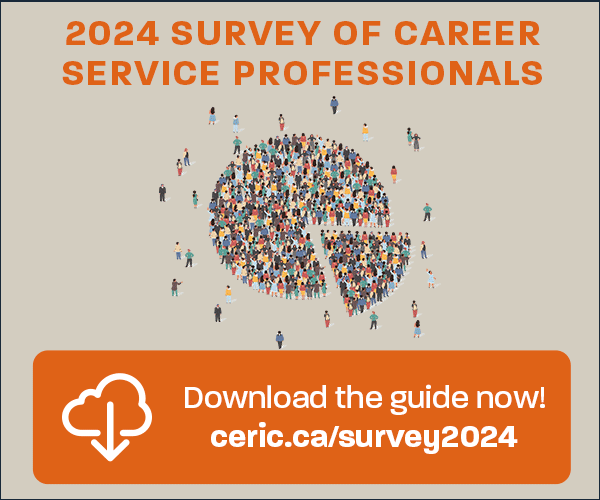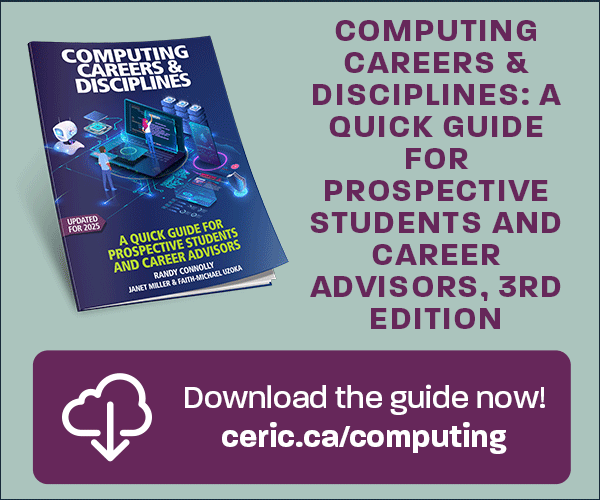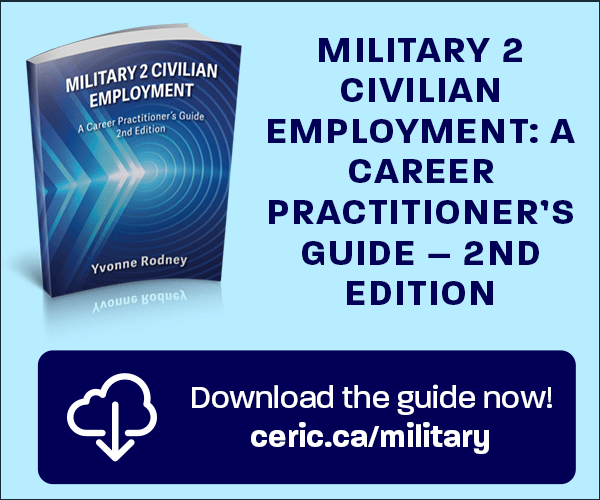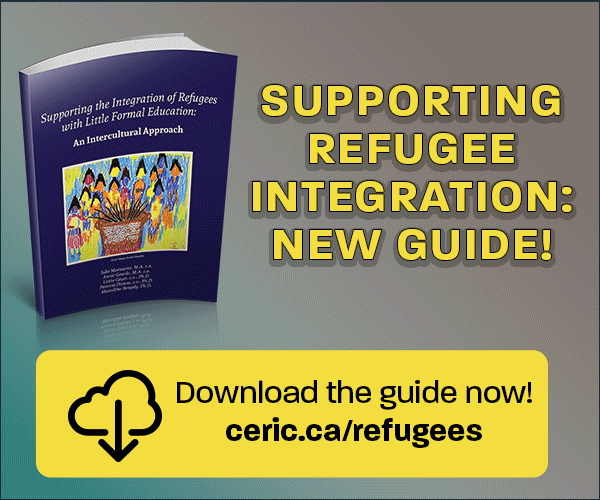Career Planning in Ontario Grade 10 Students: Counsellor Perspectives
Keywords:
career, career planning, ontario, secondary school, counsellor, studentsAbstract
Despite the recognized importance of career guidance to postsecondary access and persistence, research with key stakeholders in Canadian secondary schools is meager at best. This study sought the perspectives of Ontario school guidance staff on the career planning context of Grade 10 students. Students entering the workforce were seen to have the most difficulty with career planning and university-bound students the least. Respondents suggested that most students recognize the importance of career planning and that self-exploration and broad exploratory information regarding careers would be most useful to them. Counsellors also indicated that career planning information would be best provided via interactive web sites, a comprehensive ‘one-stop’ web site or workplace experience. Among the resources currently available, individual interaction with counsellors and experiential opportunities such as co-operative programs or the Ontario Youth Apprenticeship Program and computer programs such as Career Cruising were rated as most helpful. Suggestions for additional resources are also noted and the implications for current practice are discussed.
References
Alexitch, L. & Page, S. (1997). Evaluation of academic and career counselling information and its relation to students’ educational orientation. Canadian Journal of Counselling, 31(3), 205-218.
Bardick, A. D., Bernes, K. B., Magnusson, K. C, & Witko, K. D. (2004). Junior high career planning: What students want. Canadian Journal of Counselling, 38(2), 104-117.
Barr-Telford, L., Cartwright, F., Prasil, S. and Shimmons, K. (2003). Access, persistence and financing: First results from the Postsecondary Education Participation Survey (PEPS). Ottawa, Ontario: Statistics Canada.
Bell, D., and L. Bezanson. (2006). Career Development Services for Canadian Youth: Access, Adequacy and Accountability. Pathways to the Labour Market Series – No. 1. Ottawa, Ontario: Canadian Policy Research Networks and the Canadian Career Development Foundation.
Berger, Joseph, Anne Motte and Andrew Parkin. (2007). The Price of Knowledge: Access and Student Finance in Canada. Montreal, QC: Canada Millennium Scholarship Foundation.
Bloxom, Joan M., Bernes, Kerry B., Magnusson, Kris C. et. al. (2008). Grade 12 Student Career Needs and Perceptions of the Effectiveness of Career Development Services Within High Schools. Canadian Journal of Counselling, 42, #2.
Canadian Career Development Foundation. (2003). The Role of Guidance in Post-Secondary Planning. Montreal, QC: Canada Millennium Scholarship Foundation.
Chickering, A., & Reisser, L. (1993). Education and identity (2nd ed.). San Francisco: Jossey-Bass.
Code, M., Bernes, K., Gunn, T., & Bardick, A. (2006). Adolescents’ perceptions of career concern: Student discouragement in career development. Canadian Journal of
Counselling, 40(3), 160-174.
Council of Ministers of Education, Canada and Canada Millennium Scholarship Foundation. (2009). An Examination of Barriers to Pursuing PSE and Potential Solutions. Montreal, QC.
Creed, P., Patton, W. and Hood, M. (2009). Career development and personal functioning differences between work-bound and non-work bound students. J. Vocational Behavior, 76, 37-41.
Despres, J. (2008). Employment Day: Forty Years of Transitioning High School Seniors into the Workforce. The Career Development Quarterly, 56, #3, 274-279.
Dietsche, P. (2009). The Ontario College Student Engagement Survey 2006-2009: Final Report - Project Results, Data Modelling, Tests of Reliability And Validity and Future Directions. Toronto, ON: Prepared for the Ministry of Training, Colleges and Universities.
EBP West Berkshire. (2011). Work related learning portfolio 2010-2011. Retrieved Jan. 27, 2011 from http://www.ebpwb.co.uk/portfolio/ebpwb_portfolio_2010.pdf
Erikson, E. (1968). Identity: Youth and crisis. New York: W.W. Norton.
Finnie, Ross, and Qiu, Hanqing (Theresa) (2008). The Patterns of Persistence in Post-Secondary Education in Canada. A MESA Project Research Paper. Toronto, ON: Educational Policy Institute.
Finnie, Ross, Childs, S. and Qiu, Hanqing (Theresa) (2010). The Patterns of Persistence in Post-Secondary Education Among College Students in Ontario: New Evidence from Longitudinal Data. A MESA Project Research Paper. Toronto, ON: Educational Policy Institute.
Foley, K. (2001). Why Stop after high school? A Descriptive Analysis of the Most Important Reasons that High School Graduates Do Not Continue to PSE. Millennium Research Series. Montreal, QC: Canada Millennium Scholarship Foundation.
Gati, I., and Asher, I. (2001). The PIC model for career decision making: Prescreening, in-depth exploration, and choice. In T. L. Leong & A. Barak (Eds.), Contemporary models in vocational psychology: A volume in honor of Samuel H. Osipow (pp. 6-54). New Jersey: Lawrence Erlbaum Associates.
Grant, D. F. (2000). The journey through college of seven gifted females: Influences on their career related decisions. Roeper Review, 22, 251-261.
Grubb, N.W. (2002). Who am I: The Inadequacy of Career Information in the Information Age. A paper prepared for an Organisation for Economic Co-operation and
Development review of policies for information, guidance and counselling services, Commissioned jointly by the European Commission and the Organisation for Economic Co-operation and Development.
Herr, E. L., and Niles, S. (1997). Perspectives on career assessment of work-bound youth. Journal of Career Assessment, 5, 137–150.
King, A.J.C. (2003). Double cohort study: Phase 3 report. Toronto, Ontario: Ontario Ministry of Education.
King, A.J.C. and Warren, W.K. (2006). Transition to College: Perspectives of Secondary School Students. Toronto, Ontario: Association of Colleges of Applied Arts and Technology of Ontario.
King, A.J.C., W.K. Warren, M.A. King, J.E. Brook and P.R. Kocher (2009). Who Doesn’t Go To Post-Secondary Education: Final Report. Toronto, Ontario: Colleges Ontario.
Knighton, T. and Mirza, S. (2002), “Postsecondary Participation: The Effects of Parents’ Education and Household Income,” Education Quarterly Review, 8 (3), 25–32, Ottawa: Statistics Canada
Kracke, B. (1997). Parental behaviors & adolescents’ career exploration. The Career Development Quarterly, 45, 341-350.
Krumboltz, J.D., and R.L. Worthington. (1999). The School-to-Work Transition from a Learning Theory Perspective. The Career Development Quarterly, 47, 312-325
Lambert, Mylène, Klarka Zeman, Mary Allen, and Patrick Bussière. (2004). Who Pursues Postsecondary Education, Who Leaves and Why: Results from the Youth In Transition Survey. Ottawa: Statistics Canada.
Lent, R.W., G. Hackett, and S.D. Brown. (1999). A Social Cognitive View of School-to- Work Transition. The Career Development Quarterly, 47, 297-311.
Lipka, S. (2007) Helicopter Parents Help Students, Survey Finds. Chronicle of Higher Education, 54, #11, November 9. Retrieved Dec. 8, 2010 at http://chronicle.com/weekly/v54/i11/11a00104.htm
Looker, E. and Lowe, G. (2001), “Post Secondary Access and Student Financial Aid in Canada: Current Knowledge and Research Gaps,” background paper presented at the Canadian Policy and Research Networks Workshop on Post-Secondary Access and Student Financial Aid, February 2001, Sponsored by Canadian Millennium Scholarship Foundation, Montreal, Quebec
Magnusson, K. C., and Bernes, K. B. (2002). Comprehensive career needs survey: An overview. Alberta Counsellor, 27, 12–15.
Magnusson, K, and Roest, A. (2004). The Efficacy of Career Development Interventions: A Synthesis of Research. University of Lethbridge. Retrieved November 8, 2008 from http://www.crccanada.org/crc/files/magnusson-CareerEfficacy-synthesis829_2.doc
Malatest, R.A. (2009). Pan-Canadian Study of Career Development Practices in K-12 Public Schools. Montreal, QC: Canada Millennium Scholarship Foundation.
Malatest, R.A. (2007). Class of 2003 High School Follow-Up Survey. Montreal: Canada Millennium Scholarship Foundation.
McCrea Silva, M., and S.M. Phillips. (2007). Trading Up – High School and Beyond: Five Illustrative Canadian Case Studies. Pathways to the Labour Market Series – No.
Ottawa: Canadian Policy Research Networks.
McElroy, L. (2008). In pursuit of postsecondary education: Whether and when to go on. Montreal, QC: Canada Millennium Scholarship Foundation.
Middleton, E.B. and Lougheed, T.A. (1993). Parental influence on career development: An integrative framework for adolescent career counseling. Journal of Career
Development, 19, 161-173.
Miller, S. (2008). Helicopter Parenting. The Parent Letter, 6, (8), April. NYU Child Study Center: New York, NY.
Ministry of Education. (2006a). The Ontario Curriculum Grades 9 and 10: Guidance and Career Education. Toronto: Queen’s Printer for Ontario.
Ministry of Education. (2006b). The Ontario Curriculum Grades 11 and 12: Guidance and Career Education. Toronto: Queen’s Printer for Ontario.
Pyne, D., Bernes, K. B., Magnusson, K. C., and Poulsen, J. (2002). A description of junior high and senior high school students’ perceptions of career and occupation. Guidance and Counselling, 17(3), 67-72.
Ringer Lepre, C. (2007). Getting Through to Them: Reaching Students Who Need Career Counseling. The Career Development Quarterly , 74-85.
Rojewski, J. W. (1999). Career-related predictors of work-bound and college-bound status of adolescents in rural and nonrural areas. Journal of Research in Rural Education, 15, 141–156.
Rojewski, J., and Kim, H. (2003). Career choice patterns and behaviour of work-bound youth during early adolescence. Journal of Career Development, 30, 89–108.
Savickas, M.L (1999). The transition from school to work: A developmental perspective. The Career Development Quarterly, 47, 326-336.
Walker, K., Alloway, N., Dalley-Trim, L., and Patterson, A. (2006). Counsellor practices and student perspectives: Perceptions of career counseling in Australian schools.Australian Journal of Career Development, 15(1), 37-45.
Witko, K. D., Bernes, K. B., Magnusson, K. C., & Bardick, A. D. (2005). Senior high career planning: What students want. Journal of Educational Inquiry, 6(1), 34-49.
Worthington, R.L., and C.L. Juntenen. (1997). The Vocational Development of Non-College-Bound Youth: Counseling Psychology and the School-to- Work Transition Movement. The Counseling Psychologist, 25(3), 323-363.
Yau, M. and O’Reilly, J. (2007). 2006 student census, grades 7-12: System overview. Toronto: Toronto District School Board

Downloads
Published
How to Cite
Issue
Section
License

This work is licensed under a Creative Commons Attribution-NonCommercial-NoDerivatives 4.0 International License.
















